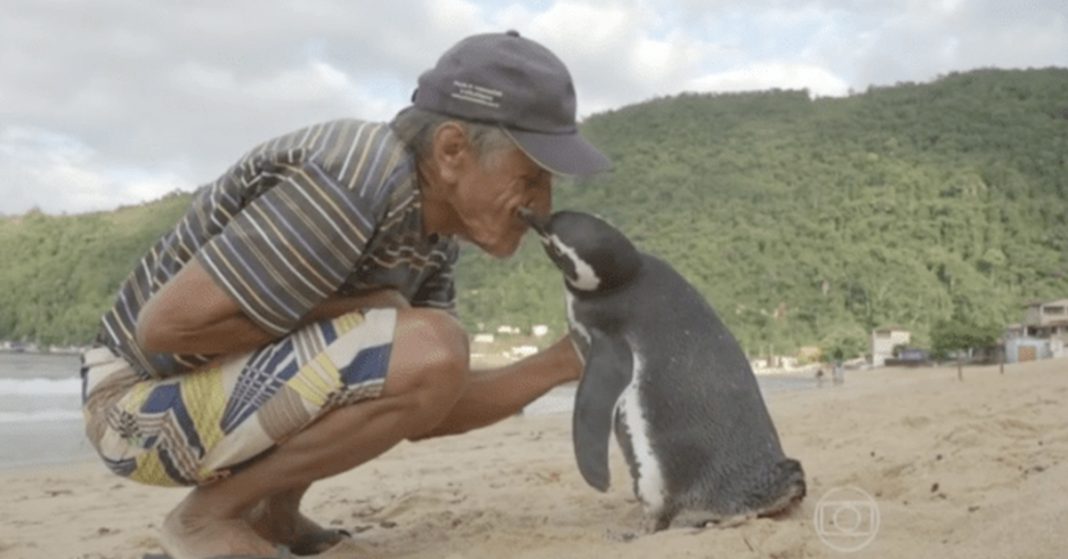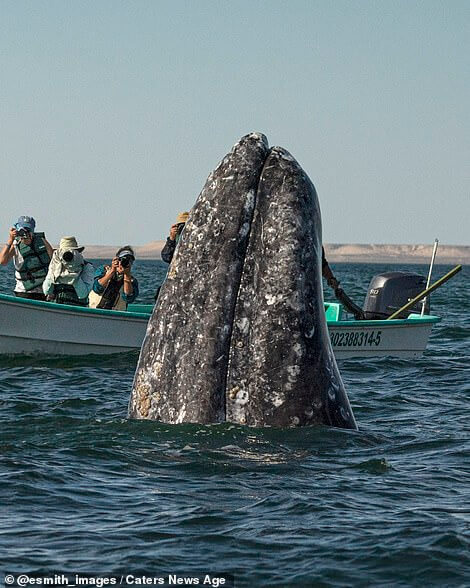Rescued Penguin swims 5,000 miles to See the Man who Saved his Life in Each Year
Today’s most heart touching story comes from a beach in Brazil, and it has to be one of the most touching wildlife stories we’ve already published on AnimalPond.
It’s the story of a South American Magellanic Rescued Penguin who swims 5,000 miles each year to see the man who saved his life.
Joao Pereira de Souza, 71, a retired bricklayer and part-time fisherman who lives in an island village just outside Rio de Janeiro, Brazil, discovered the tiny penguin, covered in oil and near death, lying on rocks on his local beach in 2011.
Joao cleaned the oil from the penguin’s feathers and fed him fish on a daily basis to help him gain strength. Dindim was his name.
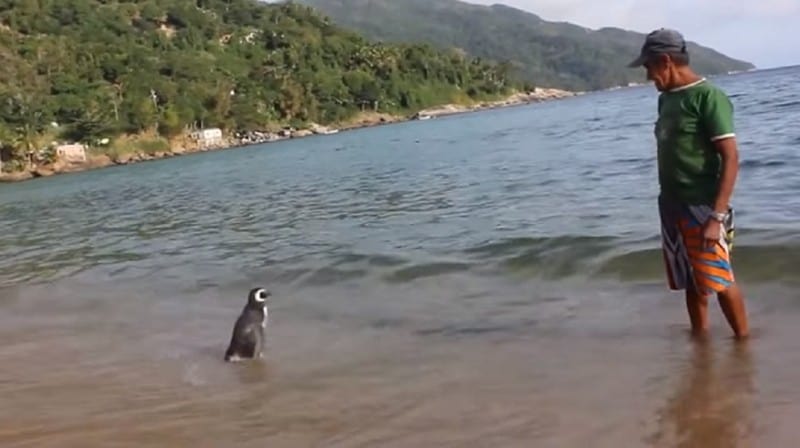
Every year, this little South American Magellanic penguin swims 5,000 miles to a beach in Brazil to be reunited with the man who saved its life. It sounds like a fairytale, but it’s true!
Joao Pereira de Souza, a 71-year-old retired bricklayer and part-time fisherman from an island village just outside Rio de Janeiro, Brazil, discovered the small Magellanic penguin lying on rocks at his local beach in 2011.
The penguin was drenched in oil and was running out of time. Joao rescued penguin, naming it Din Din, washed the oil from its feathers, and fed him a daily diet of fish to help him rebuild his strength.
Follow us on Pinterest
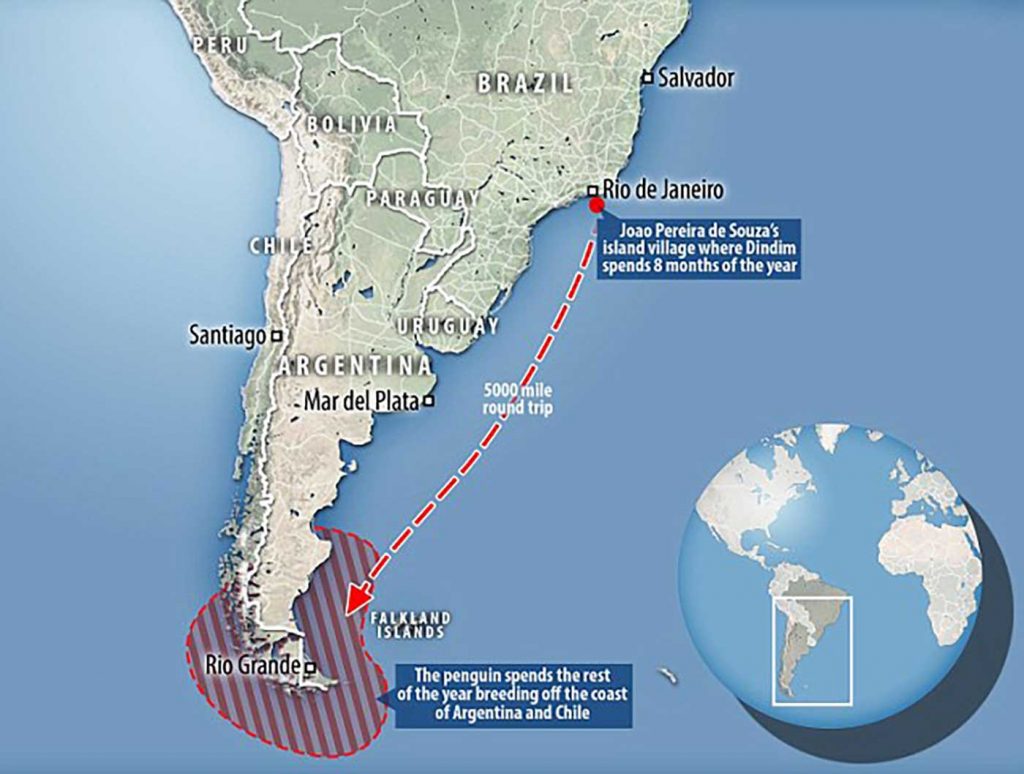
Joao tried to reintroduce the penguin to the wild after a week of rehabilitation. Din Din, on the other hand, had formed a family bond with his rescuer and refused to leave.
“He stayed with me for 11 months and then vanished just after he changed his coat with new feathers,” Joao recalls.
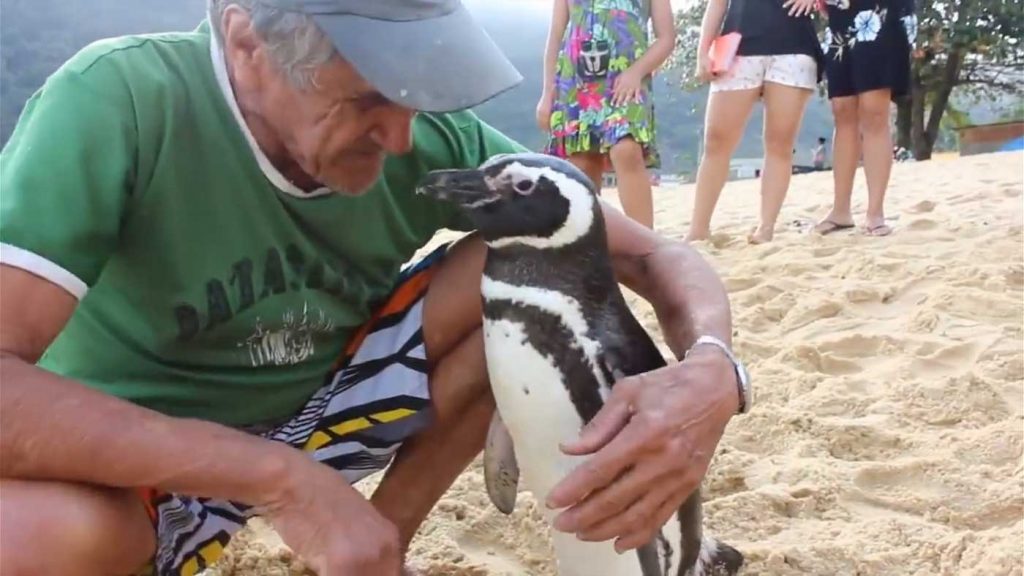
But the little guy wasn’t gone for long, and he was back at the same beach just a few months later. He saw Joao fishing and followed him home, where he stayed for the rest of the year.
Surprisingly, this cycle has proceeded for the past five years; each year, Din Din spends about eight months with Joao and the rest of the time is thought to be spent breeding on the Patagonia coasts of Argentina and Chile.
“I love the penguin as if it were my own child, and I believe the penguin loves me,” Joao said on Globo TV. “No one else is permitted to come into contact with him.” If they do, he pecks them. He sits on my lap, lets me give him showers, feed him sardines, and pick him up.
“Everyone said he wouldn’t come back, but he’s been coming to see me for the past five years.” He comes in June and tends to leave in February, and each year he grows more affectionate as he appears to be even happier to see me.”
“I have never seen anything like this before,” said Professor Krajewski, a biologist who interviewed the fisherman for Globo TV. I believe the penguin believes Joao is a member of his family and most likely a penguin as well. When he sees him, he wags his tail and honks in delight.”
Penguins live for about 25 years and are known for their mate loyalty, remaining with the same partner until death.
Environmentalists, on the other hand, warn that, while hundreds of Magellanic species are known to migrate thousands of miles north in search of food, there has been an alarming increase in the phenomenon of oceanic creatures washing up on Brazil’s beaches.
According to Professor David Zee, an oceanographer at Rio de Janeiro’s State University, the increase is due in part to global climatic changes.
“Each year, strong ocean currents from the Falkland region trap and bring many species of seals, whales, dolphins, turtles, and penguins to the Brazilian coast,” he explained. It is becoming more problematic as a result of environmental changes and the increasing frequency of el Nio, which causes the Pacific Ocean to warm for extended periods of time.
“The marine creatures become confused and lost since they are dragged away from their normal habitat on the surf and end up in areas where they cannot survive.”
Professor Zee added that “ongoing pollutants of the oceans with oil and other derivative products” spilled by oil tankers puts sea animals in “increased danger.”
Fortunately, Joao and Din Din had a happy ending, despite the fact that keeping wild animals as pets is illegal in Brazil.
“Professionals working with animals try and avoid relationships like this occurring so that they can reintroduce the animal into the wild,” Professor Krajewski said. However, in this one case, the authorities allowed Din Din to stay with Joao due to his kindness.”
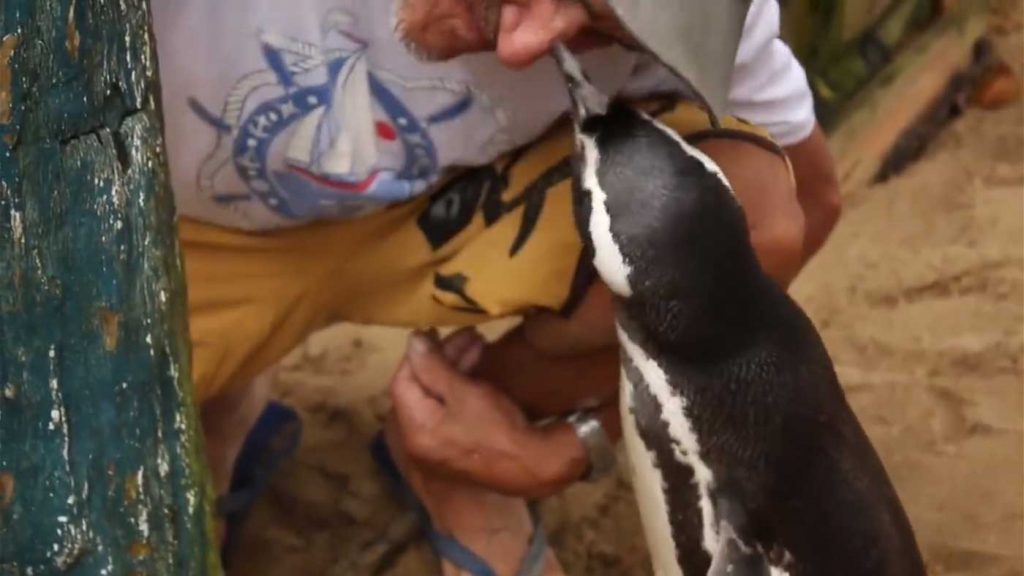
Share this incredible story with others and let us know what you think in the comments section.
In conclusion
Every year, Penguin swims 5,000 miles to see the man who saved his life.
It’s the story of a South American Magellanic penguin who swims 5,000 miles each year to see the man who saved his life.
Joao Pereira de Souza, 71, a retired bricklayer and part-time fisherman who lives in an island village just outside Rio de Janeiro, Brazil, discovered the tiny penguin, covered in oil and near death, lying on rocks on his local beach.
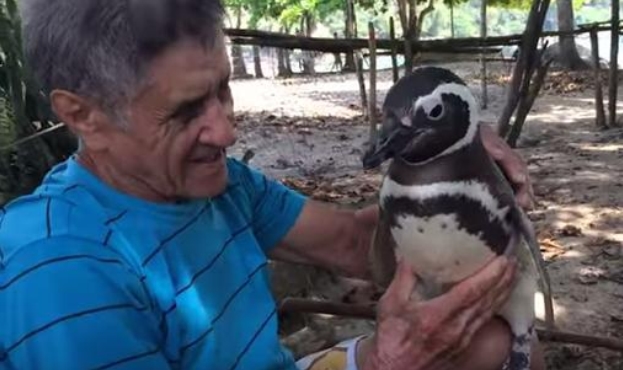
Joao cleaned the oil from the penguin’s feathers and fed him fish on a daily basis to help him gain strength. Dindim was his name.
After a week, he attempted to re-release the penguin into the sea. But the bird refused to fly away. ‘He stayed with me for 11 months and then vanished just after he altered his coat with new feathers,’ Joao recalls.
Dindim reappeared only a few months later. One day, he saw the fisherman on the beach and followed him home.
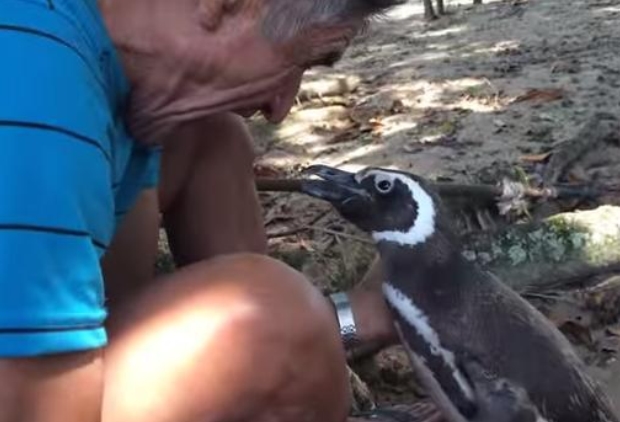
Dindim has spent eight months of the year with Joao for the past five years and is thought to spend the rest of the time breeding off the coasts of Argentina and Chile.
‘I adore the penguin as if it were my own child, and I believe the penguin loves me,’ Joao said on Globo TV. ‘Nobody else is permitted to touch him.’ If they do, he pecks those. He sits on my lap, lets me give him showers, feed him sardines, and pick him up.
Read our next article here: Tira Unique Polka Dotted Baby Zebra was Born Instead of Stripes on His Body.
